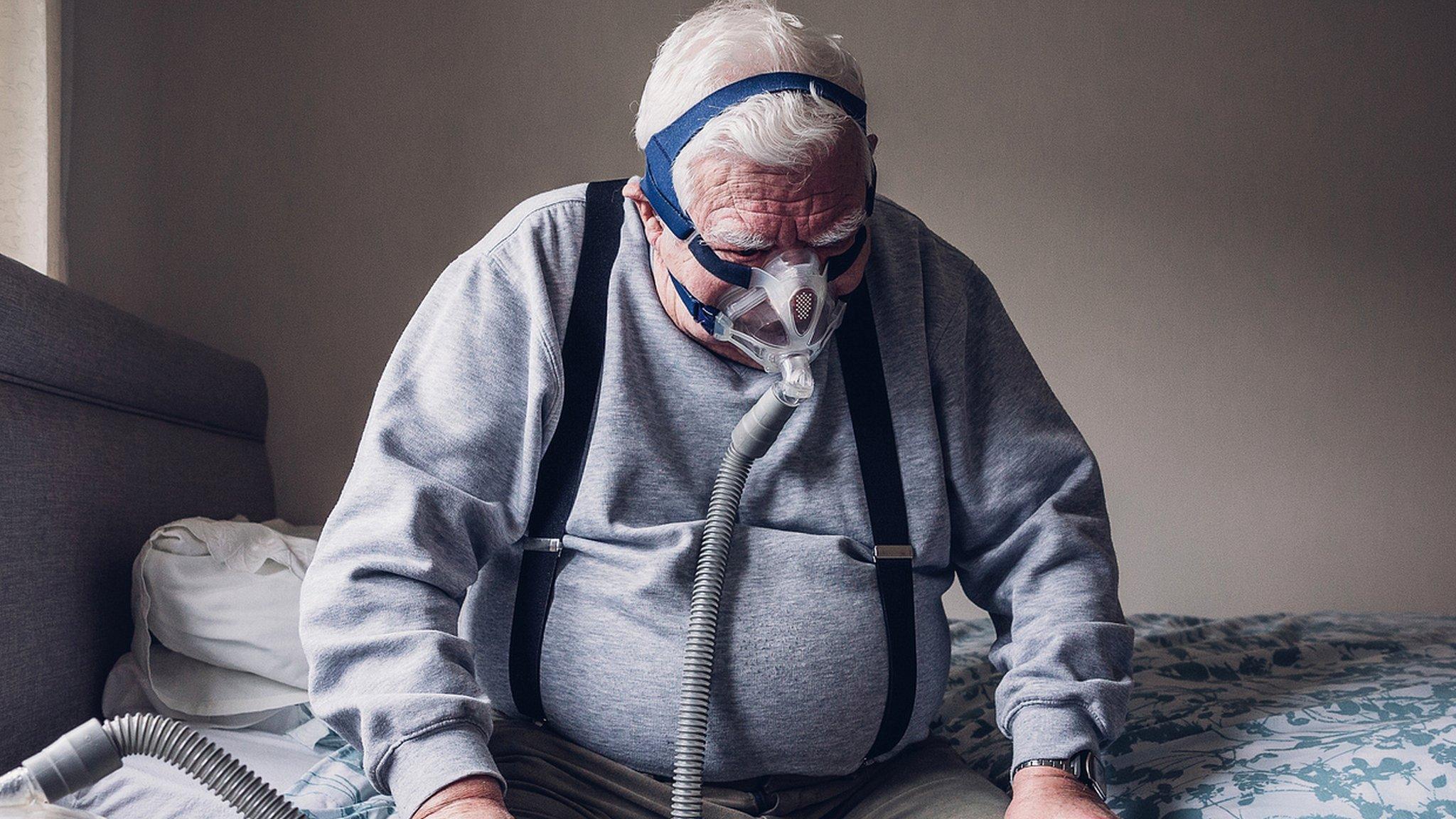Implant lets sleep apnoea patient breathe again
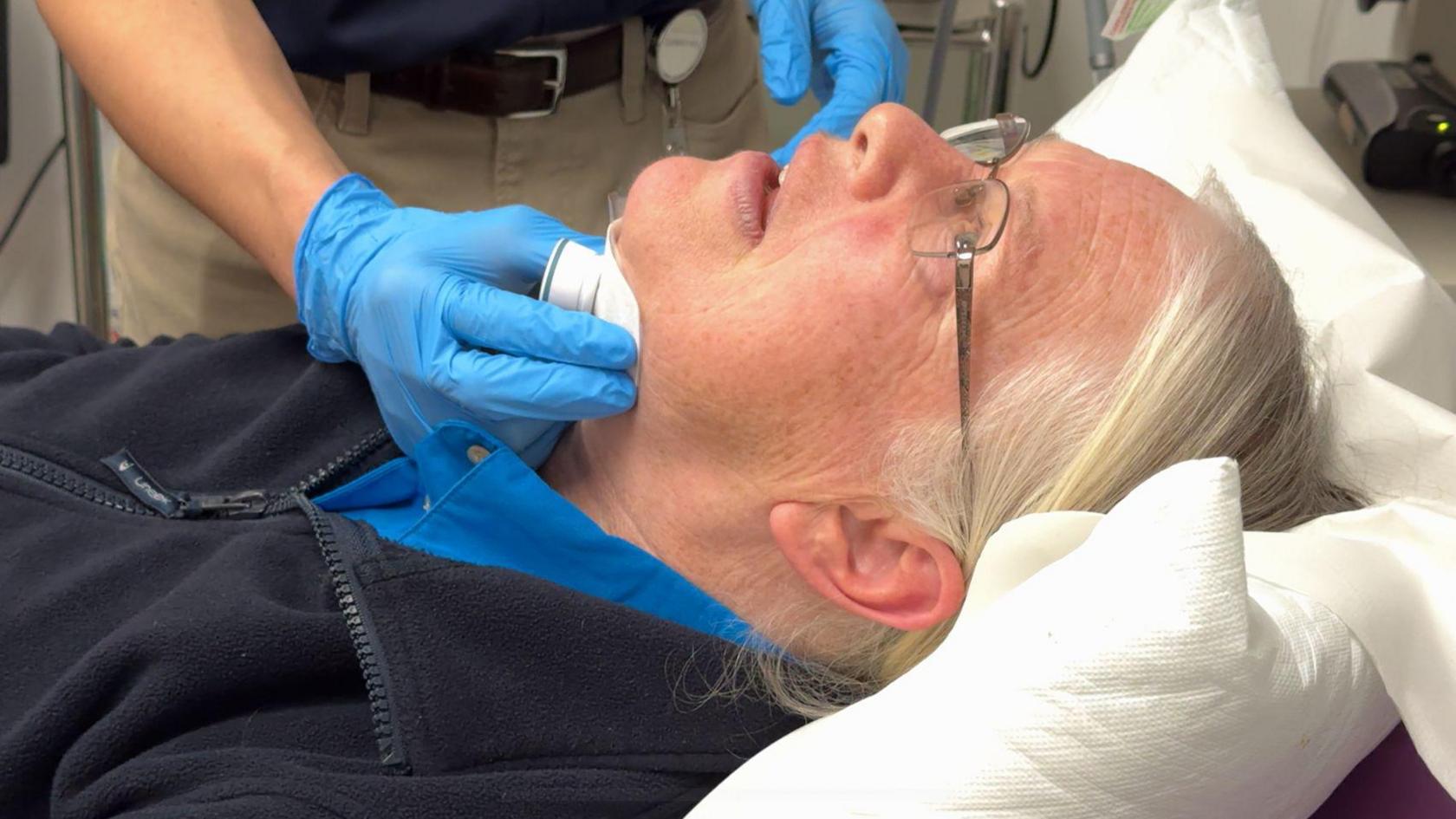
Ms Boller's tongue will move to stop obstructing her breathing
- Published
A woman who has suffered with sleep apnoea for a decade is finally able to breathe and sleep again thanks to a new implant.
Sleep apnoea is a debilitating condition that causes the airways to relax and narrow stopping patients breathing while they sleep.
Natalie Boller, from Robertsbridge in East Sussex, found herself startled awake several times every night for 10 years.
Now she has become one of the first people in the country to receive pioneering surgery and brand new technology, a chip inserted under her chin, that stimulates the nerves and reopens the airways without waking her up.
Ms Boller said: "I and my husband have just had our first good, full night's sleep in 10 years."
"We're under no illusion that there will be adjustments to make and we've been told that it can take months to fully titrate the system, so to have such a positive result on the very first night of use is really beyond expectations."
If left untreated, sleep apnoea can be dangerous and lead to life-limiting conditions like heart disease.
Ear, nose, throat and sleep surgeon Mr Ryan Chin Taw Cheong operated on Ms Boller in December at the University College London Hospital and has now activated the implant.
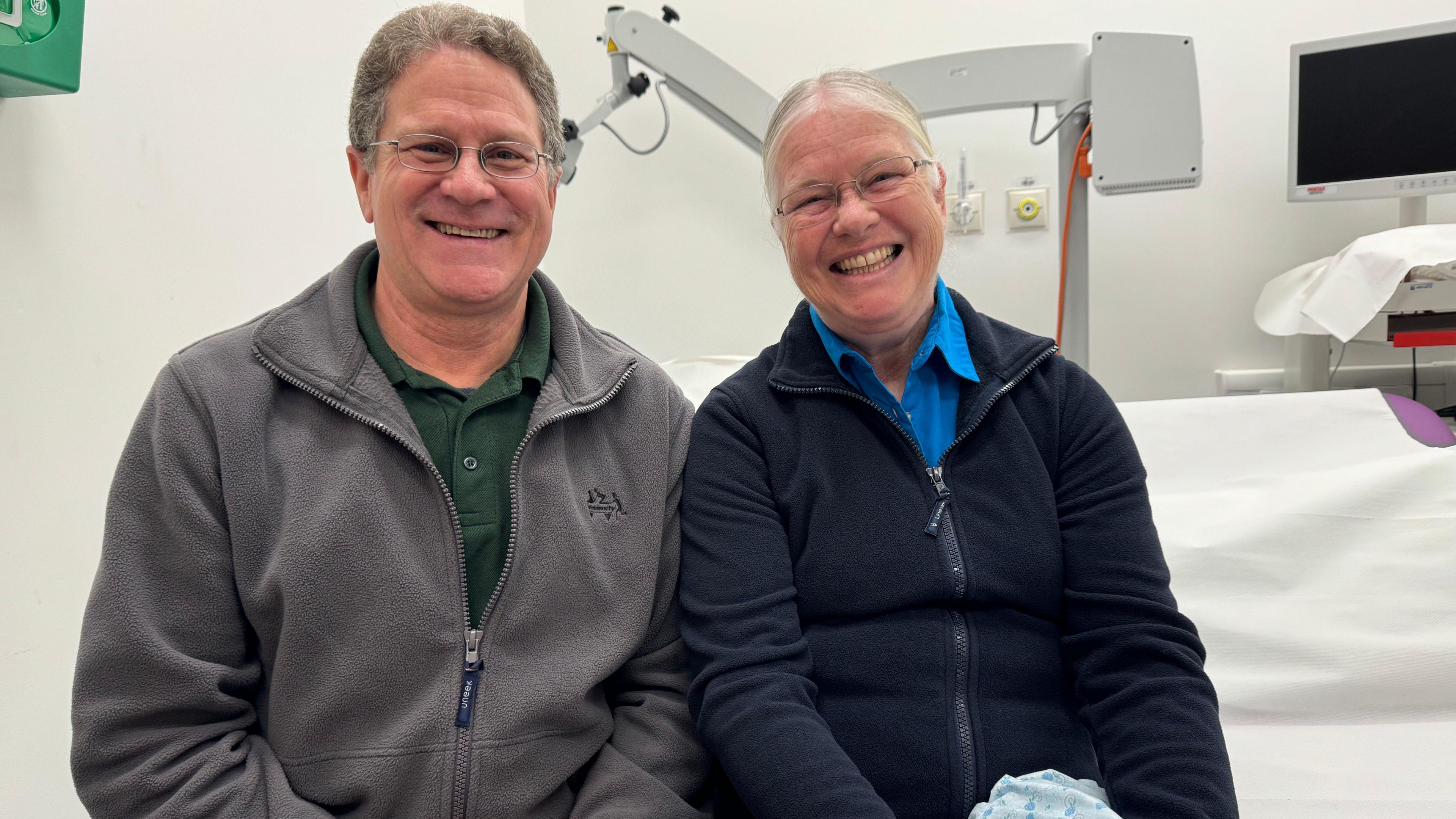
Natalie Boller and husband Kim are hoping their ordeal is finally over
"This really is the next generation of sleep surgical care," said Mr Cheong.
"With the implant active you can visually see the muscles being stimulated, moving that tongue up and out of the airway, clearing the blockage.
"You can't see the implant at all during the day and at night all she has to do is put this sticky pad over the place where the chip was inserted and fall asleep."
The implant stimulates the hypoglossal nerve, which means Ms Boller's tongue will move involuntarily as she breathes without waking her up.
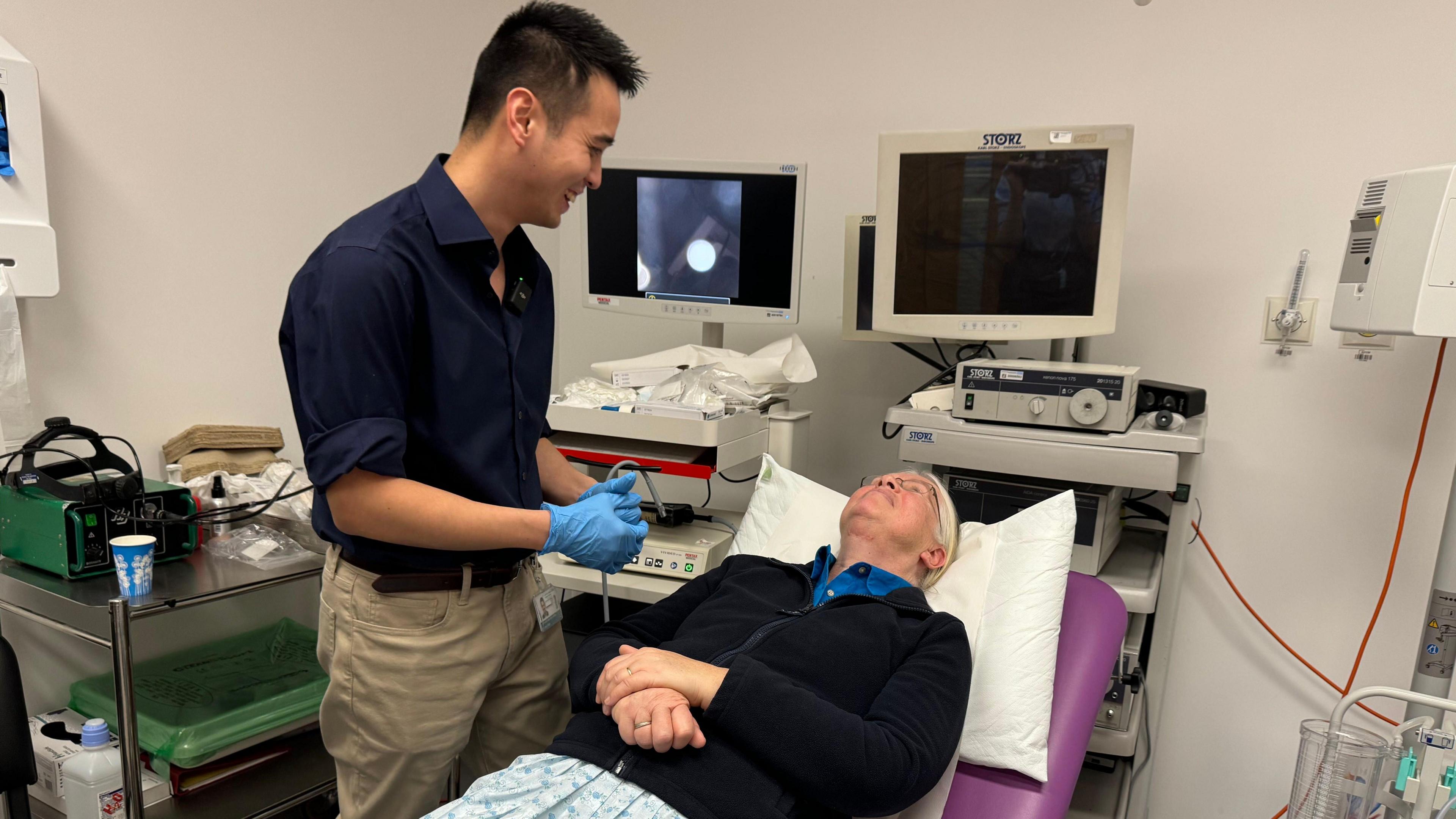
Surgeon Ryan Chin Taw Cheong says this is the "next step" of care
Her husband Kim Boller said: "To wake up in the night and your wife has stopped breathing.
"We've been married for 38 years and have six children.
"I couldn't sleep either but I wouldn't dream of sleeping in a different bed.
"I depend on her."
With the chip activated doctors say it will take a few weeks and a few more visits to fine tune it but that the results are already very promising.
Follow BBC Sussex on Facebook, external, on X, external, and on Instagram, external. Send your story ideas to southeasttoday@bbc.co.uk , external or WhatsApp us on 08081 002250.
Related topics
- Published4 January 2024
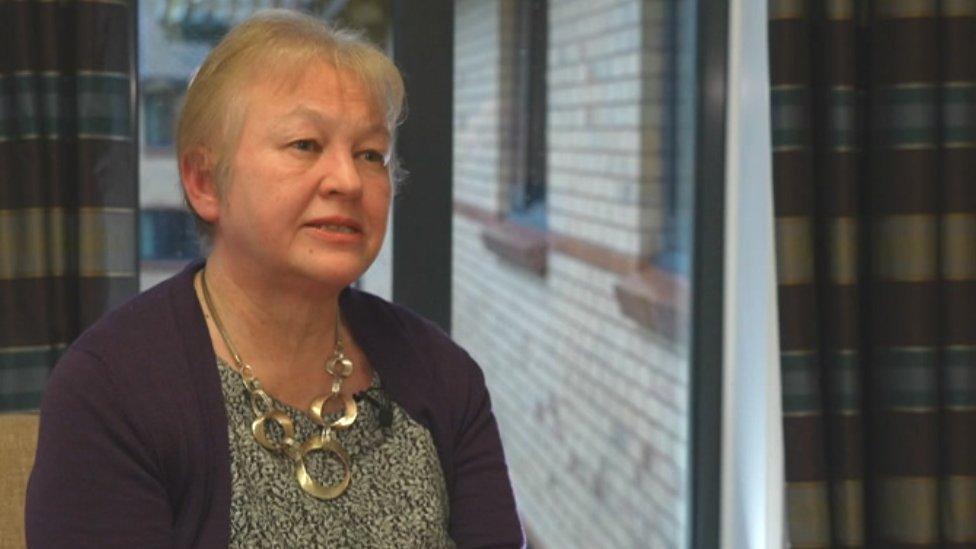
- Published5 October 2024
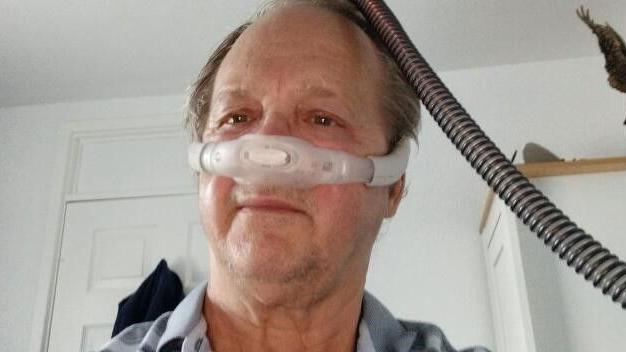
- Published13 March 2020
